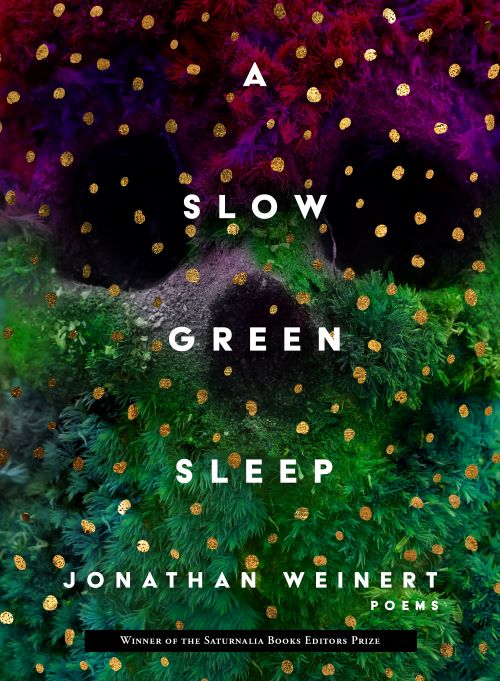When we were dead, our vexedtongues hung limp.You’d made your done face, more or less,and that was it.We slept a slow green sleep.And then the grass grew bronze and stiffand all we knew was grassand the ways through grassand the small strange laws of sleep.There the ferns grew like hair on the heads of the old dead.The young dead ate their jam of fig and white cheese.We wrote our odes and told our jokesand laughed or rolled our hard white eyes.You’d think we’d grow as tired of this as we had in life.But when the weird bell calledand the halls of the dead were filled with the smellsof pine and moss, then howwe loved our deaths the moreand kept on in the ways of deathand left the chance of new life to the oneswho weren’t yet done with time.We were. We’d get in bed there,in the grass town of the dead,left leg to right leg, sex to sex,and let death flow from chest to chest,a cold sweet air we had no need to breathe,and hold it there in a deep green swoonwhile the earth filled up with dustand passed through an age of duston its way to the last days of dust.
Green Swoon
Feature Date
- May 18, 2021
Series
Selected By
Share This Poem
Print This Poem
“Green Swoon” from A SLOW GREEN SLEEP: by Jonathan Weinert.
Published by Saturnalia Books March 2021.
Copyright © 2021 by Jonathan Weinert.
All rights reserved.
Reproduced by Poetry Daily with permission.

Jonathan Weinert is the author of three books of poems: A Slow Green Sleep, winner of the Saturnalia Books Editors Prize; In the Mode of Disappearance, winner of the Nightboat Poetry Prize; and Thirteen Small Apostrophes, a chapbook. He is co-editor, with Kevin Prufer, of Until Everything Is Continuous Again: American Poets on the Recent Work of W. S. Merwin. Jonathan lives and works in Stow, Massachusetts.

Ardmore, Pennsylvania
"Opening with the startling words 'When we were dead,' this gorgeous book moves seamlessly through time, from a post-apocalyptic world that is eerily like our own back to a history that precedes our human intrusions. The threat of extinction hovers over the book, as the poet—a 'connoisseur of disappearances'—catalogs 'memories of things / that have almost finished vanishing.' In the midst of shadow and darkness, Weinert’s lush language and lyric intensity green a world that may be heading toward sleep, but that comes alive and shining even as 'the white pines wait for us / to not be here again.'"
—Martha Collins, author of Because What Else Could I Do and Night Unto Night
"Jonathan Weinert’s A Slow Green Sleep is an astonishing and visionary book of poetic eco-witnessing that combines W. S. Merwin’s stoic political engagement with Wallace Stevens’ self-awareness of the mind at work. But even as the poems consider the terror of apocalypse, Weinert’s touch is so gentle—so anti-ego—that the effect is one of poignant acquiescence as Weinert repeatedly places the invisible dot of the self inside the vast trajectory of ecological time. Here where 'the bluescreened faces / of the fiercest predators the earth has ever seen / pretend to a devastating mildness'—where we can’t help but pledge allegiance 'to the flag of the united states of the visible'—there’s a certain comfort in the fact that 'estrangement is only human,' and there persists the hope that '[w]e are going to live on / despite / incursions in the genome.' This book is profoundly of our moment—not to mention wise and deft and moving."
—Wayne Miller, author of Post- and The City, Our City
Poetry Daily Depends on You
With your support, we make reading the best contemporary poetry a treasured daily experience. Consider a contribution today.



